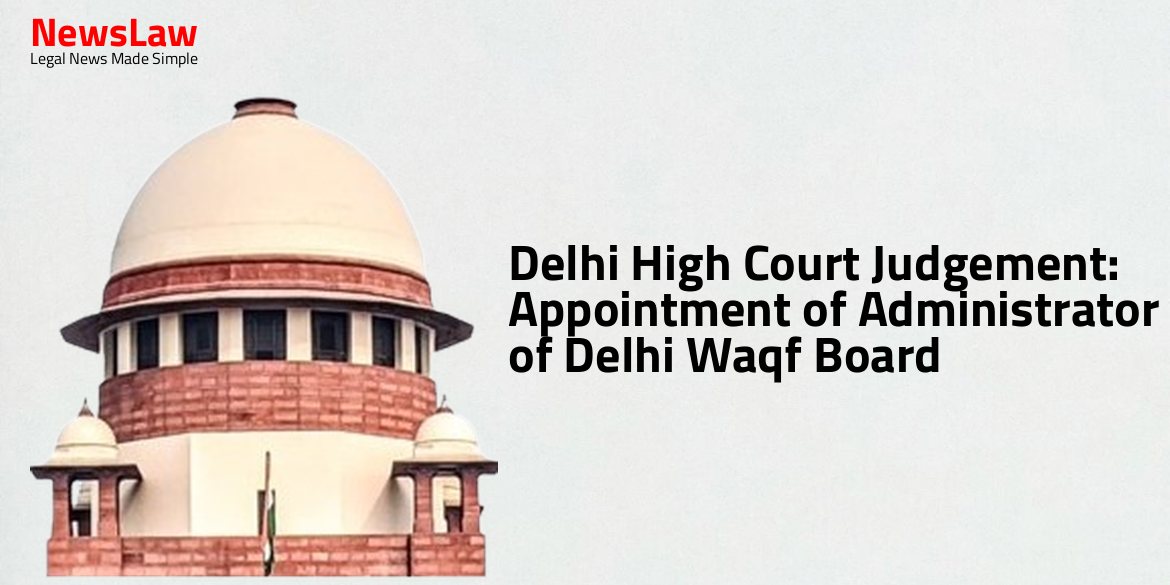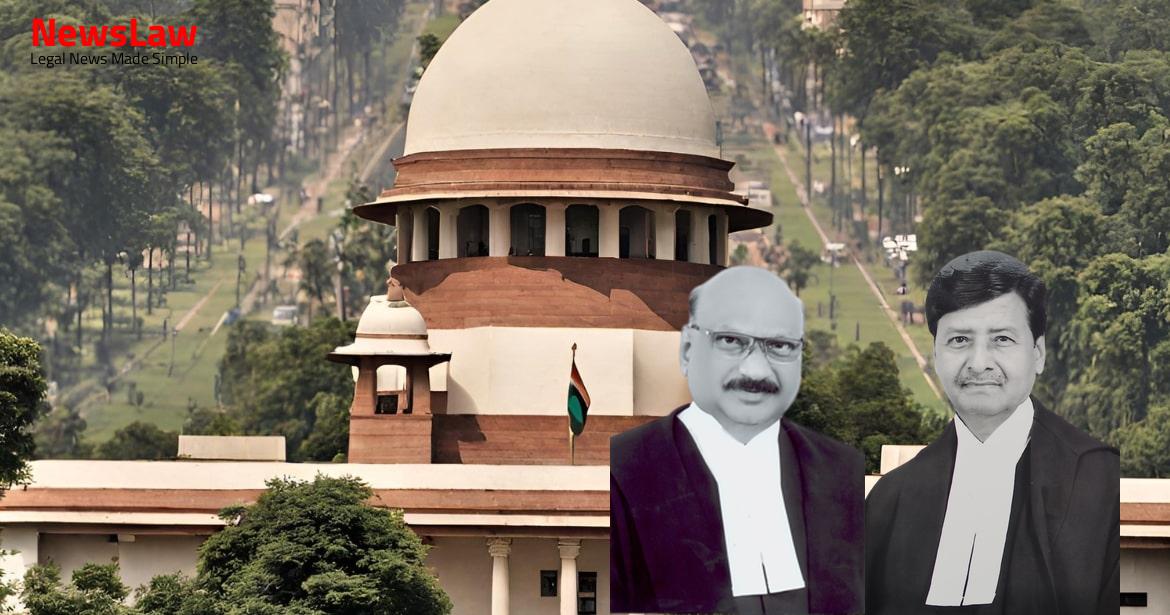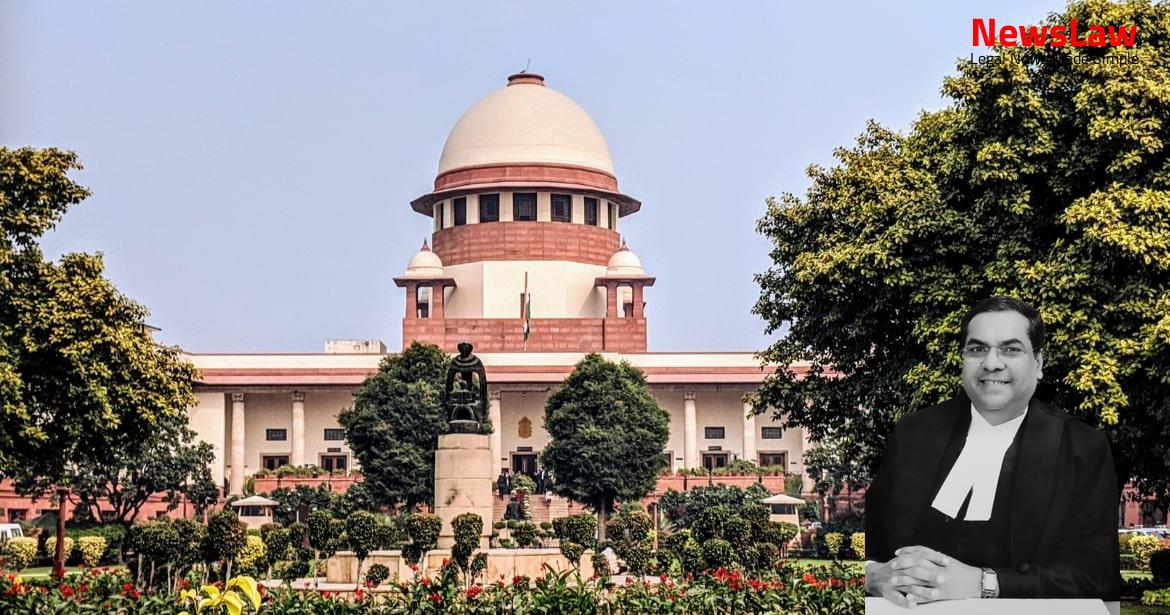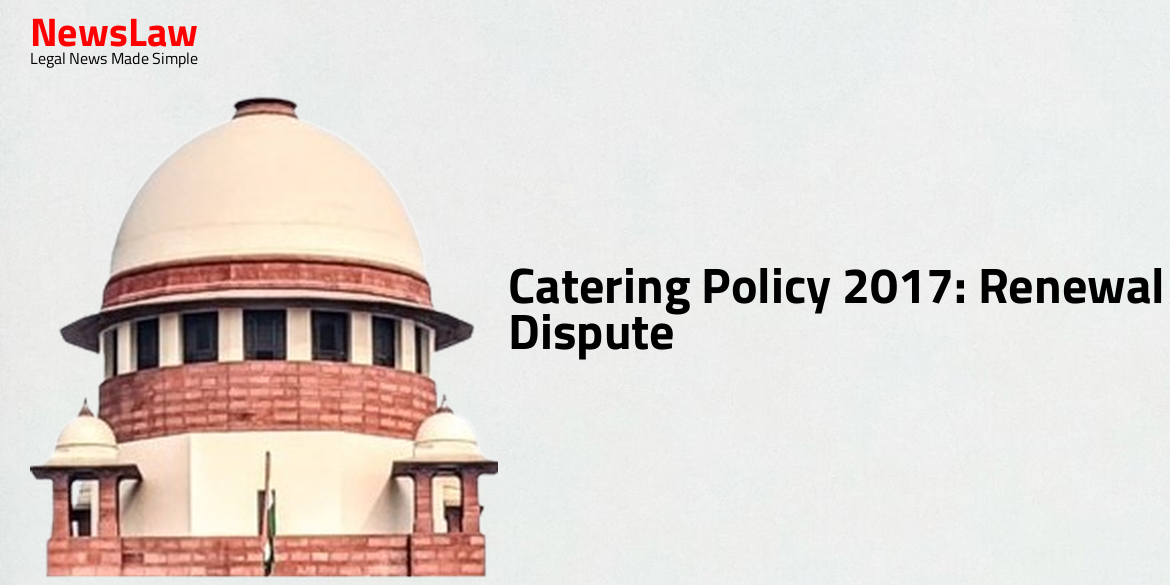In a recent judgement by the Delhi High Court, the appointment of the Administrator of the Delhi Waqf Board was upheld despite the challenges raised by the Petitioner. The Court deemed the Writ Petition as an abuse of legal process and imposed costs on the Petitioner. Find out more about this significant case involving the Waqf Board in Delhi.
Arguments
- The Petitioner’s mother is buried in a graveyard adjacent to the Akhoundji Mosque, claimed as a Waqf Property with the Delhi Waqf Board.
- The Petitioner withdrew a previous writ petition after being suggested to approach the competent authority under the Delhi Waqf Act.
- The current writ petition challenges the appointment of the Administrator of Delhi Waqf Board.
- The Petitioner, a resident of Mehrauli, has refiled the writ petition despite earlier withdrawal based on the same grounds.
- Section 99 of the Waqf Act grants the power to appoint an Administrator to supersede the Waqf Board.
- The Petitioner’s Counsel has strongly criticized the actions of the Administrator.
- The Petitioner has tried to give a communal angle to the actions of the Administrator.
- Permission and liberty to proceed as requested have been granted.
- The Petitioner had previously withdrawn the Writ Petition.
- Despite withdrawing, the Petitioner has resubmitted the same writ petition with identical allegations.
Analysis
- The State Government has the power to supersede the Waqf Board if it is unable to perform its duties, persistently defaults, exceeds powers, or abuses powers.
- The State Government can also supersede the Board if it fails to comply with directions from the Central or State Government, or if its continuance is detrimental to the interests of the Waqf.
- Before superseding the Board, the State Government must give a reasonable opportunity for the Board to show cause and consider any explanations or objections.
- The Commissioner, Minority Affairs Branch, GNCTD has been appointed as an Administrator of the Waqf Board until re-constitution.
- The decision for demolition of the structure is mentioned in the Minutes of Meeting dated 02.01.2024.
- The Petitioner should challenge the Minutes of Meeting and the decision taken, instead of challenging the appointment of Respondent No.2 as an Administrator.
- The Petitioner can approach the Waqf Board to challenge the actions of the Administrator or file a specific petition regarding this matter.
- There are other petitions pending before the Court that have challenged specific actions of the Administrator.
- It is not justified to claim that Respondent No.2 is unqualified for the position of Administrator.
- The Writ Petition challenges the appointment of Respondent No.2 as an Administrator of the Delhi Waqf Board.
- The Petitioner fails to provide any valid reasons for quashing Respondent No.2’s appointment.
- The Court deems this Writ Petition as an abuse of the legal process.
Decision
- Dismissal of the petition and any pending applications.
- Court is not inclined to entertain the writ petition.
- Disposition to impose costs of Rs. 10,000 on the Petitioner.
- Costs to be deposited with the Armed Forces Battle Casualties Welfare Fund within four weeks.
Case Title: YAMIN ALI Vs. GOVERNMENT OF NCT OF DELHI AND ORS. (2024:DHC:4346)
Case Number: W.P.(C)-3589/2024



